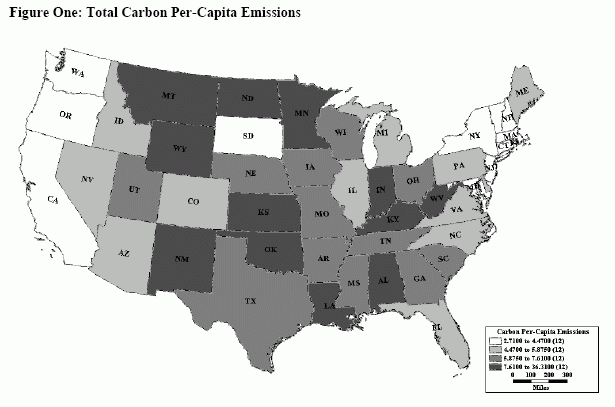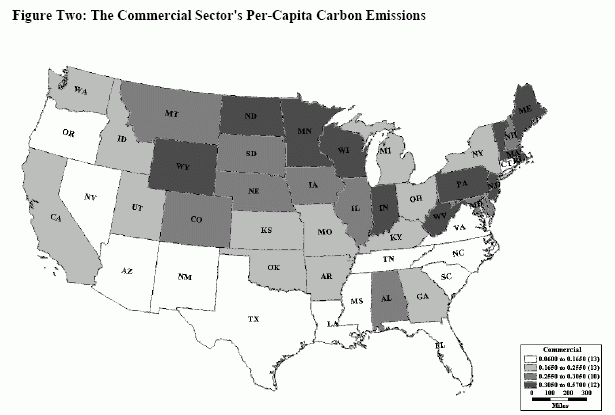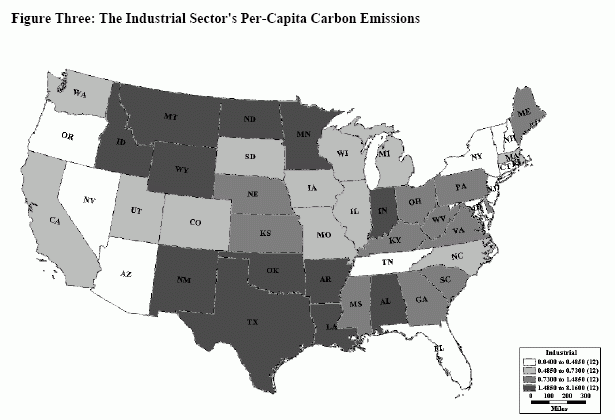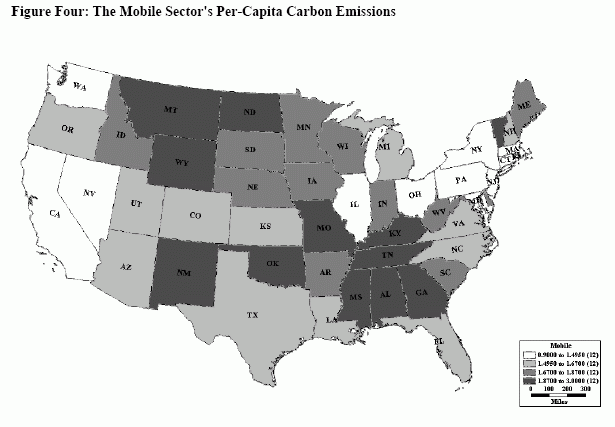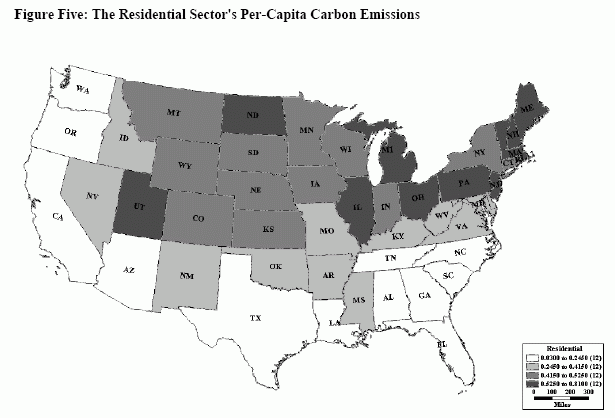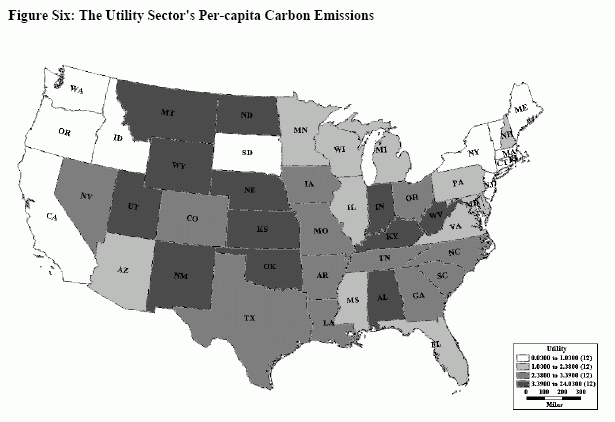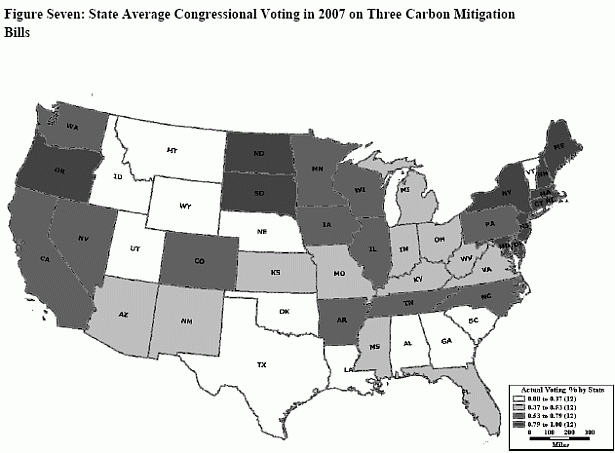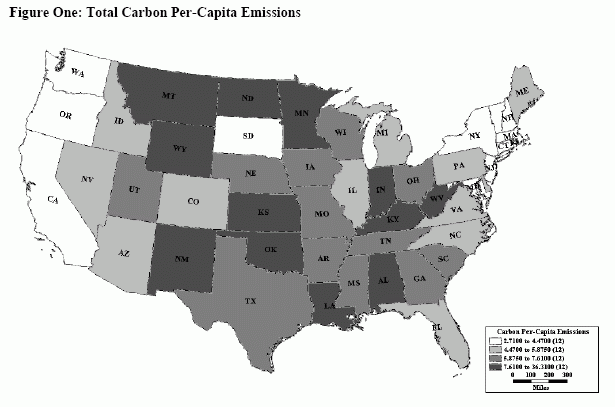If you want to understand what’s been going on behind closed doors as members of the House Energy & Commerce Committee hash out a compromise on the Waxman-Markey bill, I highly recommend reading this post by enviro-blogger Devilstower at Daily Kos.
Devilstower references a new (as-yet-unpublished) paper I mentioned the other day: “Carbon Geography: The Political Economy of Congressional Support for Legislation Intended to Mitigate Greenhouse Gas Production” [PDF], by UCLA economics professor Matthew Kahn and Michael Cragg of the Brattle Group. I know PDFs are not everyone’s favorite leisure activity, but read this paper. [I’ve put the maps from it at the bottom of this post.]
It’s about per-capita carbon emissions and how they vary among U.S. states, both overall and by economic sector. Unsurprisingly, states with high per-capita emissions roughly map to lawmakers hostile to carbon legislation. Also unsurprisingly, the disparities trace in large part back to coal.
Coal has had areas of the South and Midwest in a devil’s bargain for decades now: cheap electricity in exchange for poverty, low-quality social services, and bought-off politicians. Read Devilstower:
What the report seems to be ignoring is that the costs of the current system go far beyond the relative price of electricity and the diminishing number of jobs in the mining industry. People aren’t trapped in carbon-extraction industries by some law of nature. They’re trapped by policy and intent. Areas that are centered on extraction industries are far more likely to be poor exactly because of the nature of these industries. These are very top heavy businesses that leave behind environmental damage, little to no infrastructure improvements, and a populace whose jobs skills are not easily transported to another industry. Over the last thirty years, voters in these areas often support conservative politicians because they see these politicians as protective of their jobs. To support these industries, conservative politicians remove regulation that would improve environmental remediation, reduce taxes that would benefit communities, and drive out unions that would protect worker’s rights. The result builds a cycle that’s more difficult to stop than a two-pack a day smoking habit.
Areas dependent on extraction industry might as well be mining poverty.
Why is it still going on?
So why don’t the people in these areas break this cycle? Because they’re convinced — with pretty good reason — that if the carbon economy folds, they’ll be out of work and the rest of the country won’t lift a finger to help them.
You need something more to explain the thinking of legislators from carbon intense states. One of the minor revelations in the Kahn-Cragg paper is the “carbon intensity” of the House Energy & Environment Subcommittee itself, the bill’s birthplace:
The average Democrat on [the Energy and Environment Subcommittee of the House Energy and Commerce Committee] represents a district whose per-capita carbon emissions are 31 percent higher than the average Democrat in Congress, and the average Republican on this subcommittee represents a district whose emissions are 20 percent higher than the average Democrat on this committee. These numbers tell a clear story that the Energy and Environment Subcommittee consists of members of both parties who represent carbon-intensive districts.
“Carbon-intensive” reduces in large part to coal: mining it, burning it, depending on its cheap power. The Democrats who pushed Waxman down on targets and permits (Boucher and crew) are thinking about what’s in the best interest of coal utilities. (More on that in part two.)
Here are the maps from the Kahn-Cragg analysis (reprinted here with the authors’ permission):
